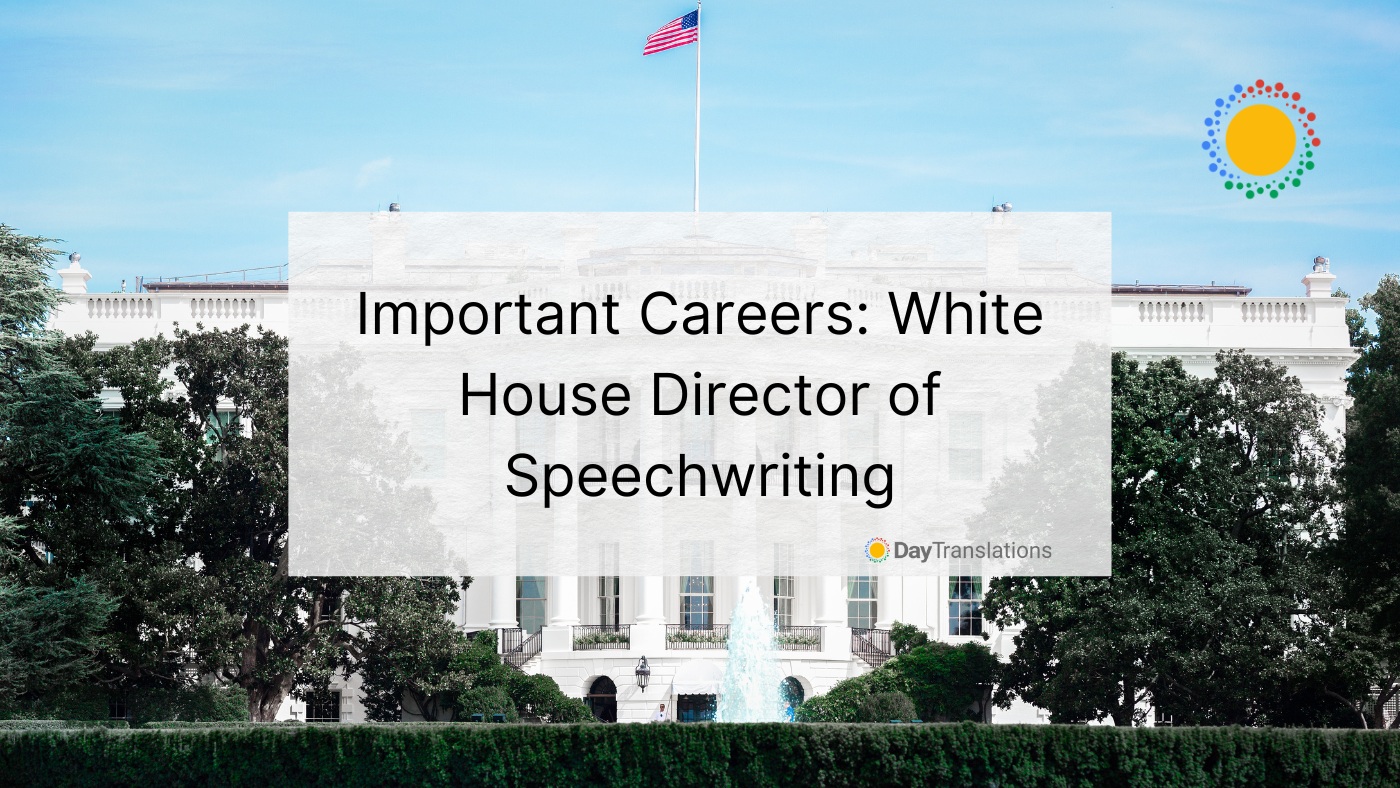When we think of presidential speeches, we often focus on the speaker: the President, delivering a message to the nation or the world. But behind every memorable speech is a team of writers led by the White House Director of Speechwriting. In this blog post, we will explore the importance of this role in shaping presidential messages and shaping public opinion.
Presidential speechwriting for the White House has a long history in American politics. From Abraham Lincoln’s Gettysburg Address to Franklin Roosevelt’s Fireside Chats, presidential speeches always have shaped public opinion and political discourse. Today, the Director of Speechwriting is responsible for crafting speeches that capture the President’s voice and message, coordinating with other White House communications team members, advising the President on speech-related matters, and preparing remarks for high-profile events.
Importance of the Director of Speechwriting in the Current Political Climate
In today’s polarized political climate, presidential rhetoric is more important than ever. The Director of Speechwriting is critical in shaping the President’s message and influencing public opinion. Effective speeches can rally the nation around a common cause, while ineffective speeches can undermine the President’s credibility and erode public trust.
In today’s polarized political climate, presidential rhetoric is more important than ever. The Director of Speechwriting plays a critical role in shaping the President’s message and influencing public opinion. Effective speeches can rally the nation around a common cause, while ineffective speeches can undermine the President’s credibility and erode public trust. Recent examples of effective presidential speeches include the eulogy for the victims of the Charleston church shooting delivered by President Barack Obama at the White House and the inaugural address delivered by President Biden.
Key Responsibilities of the White House Director of Speechwriting
Crafting Speeches That Capture the President’s Voice and Message
The Director of Speechwriting creates speeches that reflect the President’s style, tone, and priorities. They work closely with the President and other communications team members, like the press secretary and the White House Social Office, to develop speeches conveying the intended audience’s desired message.
Coordinating with White House Office Team Members
The Director of Speechwriting works closely with other White House communications team members and the White House Counsel to ensure that the President’s message is consistent across all communication channels. This includes coordinating with the press office, social media team, and other communication experts.
Advising the President on Speech-Related Matters
The Director of Speechwriting provides advice and guidance to the vice president and President on speech-related matters, including how to frame issues, respond to current events, and address the nation on key topics. They also help the President prepare for high-profile speaking engagements, such as State of the Union addresses, international summits, events at the White House visitors office, and White House press corps.
Preparing Remarks for High-Profile Events
The Director of Speechwriting is responsible for drafting remarks for the vice president and the President for high-profile events such as national ceremonies, cabinet affairs, memorials, and speeches to foreign leaders. These remarks must be well-written, impactful, and appropriate for the occasion.
Overall, the Director of Speechwriting is responsible for crafting the President’s message, ensuring consistency and effectiveness by presidential personnel across all communication channels, advising the President on speech-related matters, and preparing remarks for high-profile events and legislative affairs. This critical role requires a deep understanding of political affairs, policy, international economic issues, and communication, as well as exceptional writing and editing skills.
Skills and Qualifications for the Role
The White House Director of Speechwriting is a high-level position requiring diverse skills and qualifications. Here are some of the key skills and qualifications needed for this role:
Strong Writing and Editing Skills
The Director of Speechwriting must be an excellent writer and editor, capable of crafting clear, concise, and persuasive speeches. They must also be able to write in the President’s voice and style while adapting to different audiences and occasions.
Political Savvy and Understanding of Policy Issues
The Director of Speechwriting must have a deep understanding of politics and policy and the ability to work closely with policy experts and advisors. They must also be able to anticipate and respond to political challenges and opportunities and understand the potential impact of the President’s speeches on different stakeholders.
Ability to Work Under Pressure and Meet Tight Deadlines
The Director of Speechwriting must be able to work under tight deadlines and handle multiple projects simultaneously. They must also be able to work well under pressure, especially during high-profile events or crises.
Strong Interpersonal and Communication Skills
The Director of Speechwriting must have strong interpersonal skills and the ability to work collaboratively with other members of the White House communications team and with policy experts, advisors, and other stakeholders. They must also be able to communicate complex ideas clearly and concisely.
Relevant Education and Experience
The Director of Speechwriting should have a relevant educational background, such as a political science, communications, journalism, or English degree. They should also have significant experience in speechwriting, communications, or a related field, preferably in a political or government setting.
Overall, the White House Director of Speechwriting is a demanding and complex role that requires a combination of exceptional writing skills, political savvy, and the ability to work well under pressure. Those who aspire to this role should be prepared to develop their skills and expertise over time and to be committed to advancing the President’s message and priorities through effective speechwriting.
Wrapping Up
In conclusion, the role of the White House Director of Speechwriting is critical to the success of any presidential administration. As we have seen, this position requires a unique combination of skills and qualifications, including strong writing and editing skills, political savvy, the ability to work well under pressure, and the capacity to work collaboratively with other White House communications team members.
Whether preparing speeches for high-profile events, advising the President on speech-related matters, or coordinating with other communication experts, the Director of Speechwriting plays a pivotal role in shaping the President’s message and communicating it effectively to the American people and the world. As such, it is a role that requires exceptional dedication, expertise, and commitment and has a significant impact on the course of American history.












Sorry, the comment form is closed at this time.